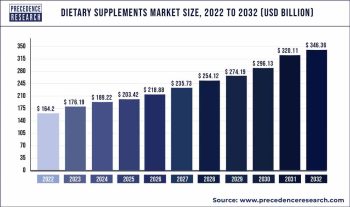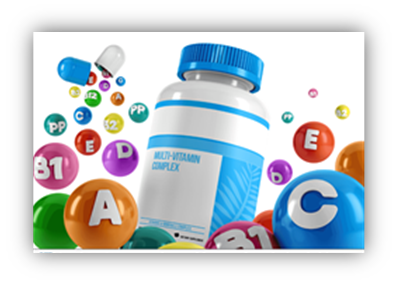Become a Dietary Supplements Expert and Watch Your Practice Explode!
It’s time to fill in the gaps of your training and build your confidence to responsibly and effectively guide your clients to better health!
Become a Dietary Supplements Expert and Watch Your Practice Explode!
It’s time to fill in the gaps of your training and build your confidence to responsibly and effectively guide your clients to better health!
Supplement Savvy:
Everything You Need to Know to Become an Expert in Dietary Supplements
Approximately 52 hours of content
w/11-hr Special Immune Focus add-on (optional)
With Susan Allen-Evenson, RDN, LDN, FMNS
*** Registration for this course is currently closed. If you want to be notified when we open on-demand registration access, please request to be on our waitlist HERE! (Be sure to mention the course name)***

 Are These Your Clients?
Are These Your Clients?
What About You?
It’s pretty evident the public is invested in their health than ever before. More and more, and especially since the pandemic, there’s been a growing focus on preventive and holistic healthcare and personalized nutrition. With a growing distrust in pharmaceuticals, this comes with a heightened interest in nutraceuticals to enhance health and immunity.
According to a 2022 survey from the Council on Responsible Nutrition (CRN), three-quarters of Americans surveyed report using nutritional or dietary supplements. Two-thirds of supplement users report they have added new supplements or increased their dose in the last year.

In fact, according to one report, the global supplements market was valued at USD 164 billion in 2022 and is projected to grow to 346 billion by 2032!
This trend serves as an indicator of the role supplements play in health and the importance the public have expert guidance. That’s great for Nutritionists, right? Well, one would think, but instead, 50% of dietary supplement users are reported to have consulted with their primary care physician for supplement recommendations, while only 13% consulted with a Dietitian or Nutritionist.
But there’s a Problem Here…
Though there are doctors very knowledgeable about nutrition, they can’t be expected to be nutrition experts.
Ask yourself…
Why does the public believe their doctor knows more about dietary supplements than a dietitian? Could it have anything to do with the fact that a standard mantra in dietetic education for years has been “Supplements are untested and unregulated” and “you can get all you need from a good, varied diet”? Is it because the perception is that dietitians only work in food groups?
It’s true – there’s simply not enough deep education on supplements in dietetic education. Is that why you’re not getting the lion’s share of business?
Or, is the vast majority just out there blindly following slick internet marketeering and so called experts with little training?

Without expert guidance, the public is left to their own to figure it out!
Big problem though – they simply can’t get the most effective personalized recommendations from websites and supplement company marketing literature.
Are You Supplement Savvy?
Supplements Can be Tricky and Downright Dangerous if Not Done Right!

Susan Allen-Evenson, RDN, FMNS
I’m Here To Help!
I’m Susan Allen-Evenson, and I have 30 years of amazing experience successfully using dietary supplements with clients in the many Functional Medicine settings I’ve worked in, including several years in private practice. I’ve even consulted for a couple of supplement companies along the way.
I know the ins and outs, what to do, and what NOT to do, and I’ve got insider industry secrets ready to share! It’s critical you know this too if you want to capture the business that’s out there just waiting for you to grab. I’ve been providing professional training for Dietitians/Nutritionists for over 10 years now because I know firsthand how much our public needs responsible and safe guidance for their health. Many I train are surprised there is a lot more to know about dietary supplements than they ever thought.
The Public Needs to Recognize the Dangers of Do-it-Yourself Protocols
They Need True Experts to Guide Them in Safe and Effective Supplement Use!
This Should Be YOU!
Why even recommend Supplements?
Our conventional nutrition education has prepared us well in key areas like general anatomy & physiology, lifecycle nutrition, macro and micronutrients, body systems; cardiovascular, blood sugar, liver, digestion, etc, and of course, specialty medical and overall healthy diets. The emphasis is on getting nutrition through a good varied diet; one that provides the RDAs for all the essential nutrients. But what about when diet and RDA standards aren’t enough?
Think about it…
A good segment of our clients are on some sort of specialty diet at any given time and sometimes long-term: low calories/low fat, restrictive diets often lacking variety, or even omitting an entire food group, and of course, there are some who simply prefer highly processed and/or convenience foods.
About 75% of the US population don’t consume the recommended intake of fruit, and more than 80% don’t get the recommended intake of vegetables. That’s just the tip of the iceberg!
What’s deceiving is even with healthy foods are consumed, there can be a depletion of nutrients, what with overcooking/over farming, and over processing. There are also nutrient changes over time that can occur from long-term shipping over multi countries.
What else influences our nutrient status?
Well, according to the concepts of orthomolecular medicine, rationale for using supplements include:
There’s also microbiome imbalances we’re learning more about every day, increased needs based on stress effects, and even exercise demands.
All totaled, it’s no surprise data shows many Americans are not reaching micronutrient intake requirements from food alone. In fact, micronutrient inadequacies are quite common. Reports have estimated…
– 72% don’t meet Calcium needs
– 34% don’t meet Iron needs
– 75% don’t meet Folate needs
– 68% don’t meet Magnesium needs
– 42% don’t meet needs for Zinc
– 48% don’t meet needs for Vit C
– 86% don’t meet needs for Vit E
– 30-35% don’t meet B vitamin needs
– 54% don’t meet needs for Vit A
Pretty astounding, right?
It also doesn’t help that while these inadequacies can result in clinically overt symptoms, they may also present covertly making it difficult to detect clinically. For example, much literature confirms micronutrient inadequacies could elicit symptoms of general fatigue, reduced ability to fight infections, and impaired cognitive function (i.e., attention, memory, and mood).
Micronutrient inadequacies may also have important implications for long-term health and increase one’s risk for chronic diseases like cancer, cardiovascular disease, type 2 diabetes mellitus, osteoporosis, and age-related eye disease.
“The consequences of moderate shortages of even a single micronutrient, though insufficient to cause overt clinical symptoms will impair functions essential for long-term health.”
~Bruce Ames, PhD; Molecular and Cell Biology Expert, UC Berkeley
Get the 411 For All You Need to Know!
In this training series, we’ll explore assessment modalities including laboratory biomarkers and clinical signs/symptoms that aid us to best determine our patients’ needs for supplementation and provide the basis for responsible recommendations. Likewise, the importance of follow-up to adjust recommendations over time.
Given the myriad of reasons for nutrient insufficiency, it becomes increasingly evident why assessing nutrient status though dietary intake alone is simply not enough anymore! Furthermore, considering the physiologic action of nutrients occur at the cellular level, it’s often not even enough to assess general serum/plasma levels. In this training, I’ll be sure you’re well informed on:
You’ll finally get to the root of the issue by discovering nutrient inadequacies or imbalances behind your clients’ symptoms and health conditions.
This is the Complete Package!
This training details all the main vitamin and mineral nutrients and their corresponding supplements at a comprehensive level.
Nutrients detailed include vitamins A, D, E, & K, the B vitamins, and all the main minerals.
For each, we’ll cover…
• Their role in health and disease (Special emphasis on immune support!)
• Insufficiency/deficiency signs/symptoms and risk factors
• Laboratory biomarkers, including functional lab assessment
• Genomic considerations as polymorphisms are relevant
• Food Sources
• Supplementation types, delivery, and dosing specific application
• Synergistic and antagonistic nutrients that can affect status
• Research supporting responsible and effective use in practice
• Toxicity concerns and potential controversial considerations

We’ll explore key areas along the journey
• Beyond the RDAs: aspects of nutrient insufficiency and deficiency for all the vitamins and minerals
• The Nutritionists professional role recommending supplements for personalized nutrition support
• Assessment methods to determine supplement needs
• Supplement regulatory & quality issues, along with safely parameters
• How to assess a identify top-level supplement manufacturing
• Key considerations for recommending supplements
• Common supplements; how to choose and use
• Using professional supplement dispensary services
• Ethical issues related to the sale of or any profit derived from supplement sales

You’ll discover…
• Why nutrition balance is just as important as nutrient sufficiency
• Where many go horribly wrong with supplement choices without even realizing
• The shocking reports of adulterated products and how to better source supplements.
• How to give the most effective recommendations and save your clients cash at the same time!

Add On Special Focus: Immune Support Supplements
What’s covered…

Praise For Our Course

“With Next Level Functional Nutrition and Susan’s experience and knowledge, I have learned without having to leave my home and with the support of other nutritionists whom also serve as mentors…even as they are learning, too.”

“This program has taken my knowledge base to a whole new level and has allowed me to add valuable new skills and tools to my practice. It has also opened up my eyes to the many areas that were missing using conventional medical nutrition therapy alone. It has recharged my batteries, renewed my spirit and given me new hope in helping patients, my family and myself regarding health and nutrition.”

Susan teaches us what we thought we would be learning as a dietitian in school. She fills in the blanks of what is missing in our training and how we can truly be the nutrition expert through IFMNT.
We got into this business to help people.
Let’s do it then, and more importantly, let’s do it right!
Become The Supplement Authority Your Clients Need!
Two New Registration Options:
All the content of the Supplement Savvy Training PLUS:
*** Registration for this course is currently closed. If you want to be notified when we open on-demand registration access, please request to be on our waitlist HERE! (Be sure to mention the course name)***